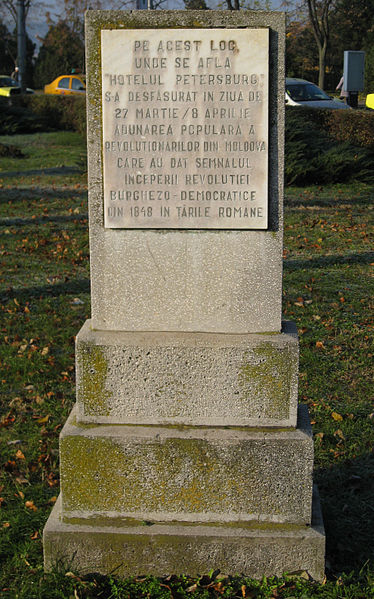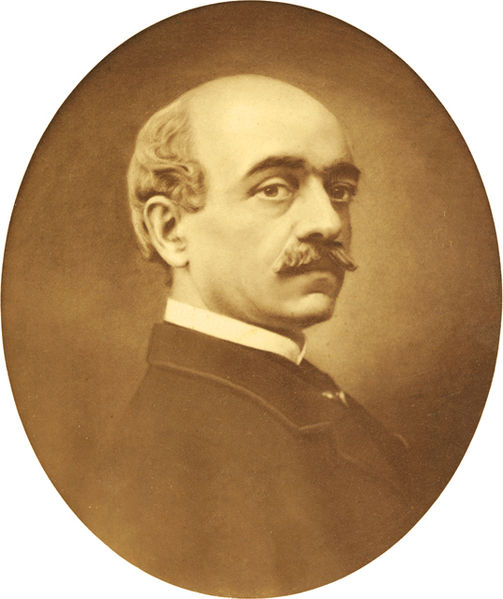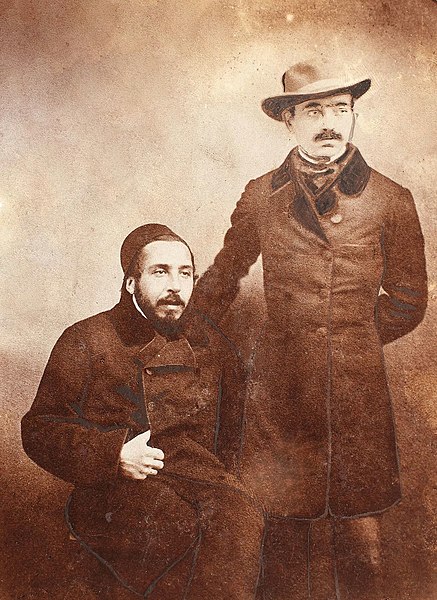Vasile Alecsandri was a Romanian patriot, poet, dramatist, politician and diplomat. He was one of the key figures during the 1848 revolutions in Moldavia and Wallachia. He fought for the unification of the Romanian Principalities, writing "Hora Unirii" in 1856 and giving up his candidacy for the title of prince of Moldavia, in favor of Alexandru Ioan Cuza. He became the first minister of foreign affairs of Romania and was one of the founding members of the Romanian Academy. Alecsandri was a prolific writer, contributing to Romanian literature with poetry, prose, several plays, and collections of Romanian folklore, being considered, alongside Mihai Eminescu, which admired and was inspired by the writings of Alecsandri, as one of the most important Romanian writers in the second half of the 19th century.
Vasile Alecsandri
Vasile Alecsandri on a 2014 Romanian stamp
Ion Ghica (seated) and Vasile Alecsandri, photographed in Istanbul (1855)
Moldavian Revolution of 1848
The Moldavian Revolution of 1848 is the name used for the unsuccessful Romanian liberal and Romantic nationalist movement inspired by the Revolutions of 1848 in the principality of Moldavia. Initially seeking accommodation within the political framework defined by the Regulamentul Organic, it eventually rejected it as imposed by foreign powers and called for more thorough political reforms. Led by a group of young intellectuals, the movement was mostly limited to petitioning and constitutional projects, unlike the successful uprising taking place later that year in neighbouring Wallachia, and it was quickly suppressed. This was despite the fact that the Moldavian revolutionaries were more moderate and willing to compromise in their demands for reforms than their Wallachian counterparts, as Moldavian political and social life continued to be dominated by a landed, conservative aristocracy, with the middle class still embryonic.

Communist-era plaque marking the site of the Petersburg Hotel, where an assembly on 8 April met and drew up a petition for Prince Mihail Sturdza.




